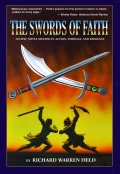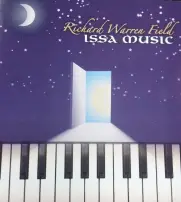Book Commentary/Review – Music and the Mind by Anthony Storr May 27, 2012
Posted by rwf1954 in Anthony Storr, book review, books, music, Music and the Mind.Tags: Anthony Storr, book commentary, book review, books, music, Music and the Mind
trackback
(This is the fourth of what will be a series of commentaries about a series of seven or so books about the nature of music. The first three commentaries of this series were about the books Musicophilia: Tales of Music and the Brain by Oliver Sacks, This is Your Brain on Music by Daniel Levitin and Music, the Brain and Ecstasy by Robert Jourdain. This series has been triggered as a result of my rediscovery of the love of creating and performing music. There is definitely a spiritual connection to this rediscovery, evidenced by my recent release of “Issa Music” and my posts about mystical/spiritual aspects of the music of the progressive rock group Yes (The Poetry of (the Progressive Rock Group) Yes: Introduction to “The Revealing Science of God—Dance of the Dawn” from “Tales from Topographic Oceans” and The Poetry of (the Progressive Rock Group) Yes). This further relates to spiritual meditations with the theme of more than one path to God, and the possible coming together of both physics and metaphysics I and II).
In Music and the Mind by Anthony Storr, we examine music and the mind from less technical, more abstract perspectives, looking at music from psychological and philosophical angles. In the first three books of this series, the focus was on how the brain processes the sound waves that comprise music, and how those brain processes can be interrupted. Storr brings us back from the trees, to examine the forest. This felt like a digression at first from my stated purpose of trying to make sense of and even combine the physics and metaphysics of music. But Storr’s book tackles the subject directly, less mystically than my approach, but in a way that allows us to monitor what recent ideas have been on the broader effects of music on the mind.
Some highlights:
- Storr starts Music and the Mind with this sentence: “No culture so far discovered lacks music. Making music appears to be one of the fundamental activities of mankind; as characteristically human as drawing and painting.” From there, he looks back to how music evolved as a human activity. He tells us “the origins of music may be lost in obscurity, but, from its earliest beginnings, it seems to have played an essential part in social interaction. Music habitually accompanies religious and other ceremonies.” Storr goes on to refer to the renowned Twentieth Century composer Igor Stravinsky and his belief that “‘the profound meaning of music… is to promote a communion, a union of man with his fellow man and with the Supreme Being.’” Though Storr does not appear to concur with the idea of music as some form of physical/metaphysical channel of sensation/awareness, he at least includes the idea, not included, blatantly excluded, from other treatments of the subject.
- Storr does spend some time discussing the body’s response to music in his chapter “Music, Brain and Body.” He refers to some of Oliver Sacks’ work in this area.
- Storr looks at the idea that music can be a “universal language” and rejects it, pointing to the diverse forms of music around the world. (I’m still studying this issue. I suspect I will disagree with Storr. I completely acknowledge the diversity he points out. But I believe within that diversity, there are some commonalities. Right now, this is only a belief, an intuition, awaiting further objective examination. An examination of exotic music from different cultures, music with apparent dissimilarity to “Western” or closely culturally related music, will be needed. This dovetails nicely with my own creative efforts. My CD “Issa Music,” consisting of music created over twenty years ago, resulted from efforts at combining music styles from different cultures. This study will result in more music!) Storr goes into the Pythagorean discoveries of the ratios of octaves and perfect fifths with respect to the lengths of vibrating strings. But he then suggests that the Western tonal system, stemming from the studies, is far from universal. He points to music in the world formed outside Greek influences as different from the Western tonal system. He concludes “different cultures produce different musical systems just as they produce different languages and different political systems.” (But there are common “universal,” characteristics of languages and political systems…)
- He reminds us that music started as song, and instruments appear to have been created to accompany singing voices. Purely instrumental music appears to have been a more recent human construction. He discusses “form and expression” in instrumental music.
- Storr offers the idea that music “promotes order within the mind.” It is an integral part of human nature to try to bring order from chaos. Music brings order to sound.
- Storr discusses how: “Music began as a way of enhancing and coordinating group feelings.”
- In the final three chapters, “The Innermost Nature of the World,” “A Justification of Existence,” and “The Significance of Music,” Storr goes deeply into philosophy, focusing heavily on ideas about music, and reality, offered by Schopenhauer and Nietzsche. Here, he touches on the metaphysical. (Frankly, we learn that these atheists seem less than atheistic. Schopenhauer’s idea that “ultimate reality is a unity… inaccessible,” and Nietzsche’s “Will to Power,” described as “cosmic energy, the force that moves the planets or forms the stars, as well as to the energy which activates human beings” seem suspiciously like a broad definition of God to me. Hey Nietzsche, I’m not so sure He/She/It is dead after all!) Both Nietzsche and Schopenhauer give music a special place in the arts, with Nietzsche (a composer and performer himself—something I did not know before reading this book) much more positive and optimistic about what music can do for human beings. Schopenhauer sees music as an “escape” from the pain of existence, a transcendent form of expression that leaves reality. Nietzsche sees music as “life-enhancing” rather than “escapist.” During the philosophical discussions, Storr also brings in Freud and Jung, blending the psychological and philosophical.
- A key issue raised by Nietzsche is the existence of opposites in life; no light without darkness, no joy without sorrow, no pleasure without pain. From this idea in Storr’s book, we are reminded of the idea of consonance and dissonance in music. In a sense, music illustrates the pain/pleasure idea in little dramas throughout a musical product— song or instrumental piece. Resolutions of harmonies, of melodies, and of rhythmic tensions play out—these resolutions are piped directly into us through our ears, directly into our brains, to be absorbed by our minds. These little sonic dramas are controlled, meticulously controlled. Our world does not allow us to control pain and pleasure so easily. Music gives us this opportunity, in motion, in time, penetrating directly into our minds. I think this is an important insight—stimulated by Storr’s book—into the nature of music and why it is so ingrained in all humans.
- Storr offers us an insightful parallel between music and religion, possibly explaining music’s affinity with the metaphysical. As discussed earlier, music brings order to sound, so exists as a way of ordering the world. Religion brings explanation to existence. So we are left with the questions I have asked over the course of these posts: Are “communal chanting and dancing, often of an ecstatic kind” simply a human characteristics, or do they this mean music could be a wired-in route to a mystical/spiritual reality beyond what we see in the material world? Could the effort to sense God, to communicate with the God force through music, confer some form of evolutionary advantage on humans?
For those wishing to absorb broad perspectives on how music and the mind relate, perspectives spanning cultures across the globe and throughout time, from the Greeks to Schopenhauer and Nietzsche, this book is a quick, focused read. The music listener will see music in a new, more expansive way. And music creator will need to fight off the new ideas that will flow.



Comments»
No comments yet — be the first.